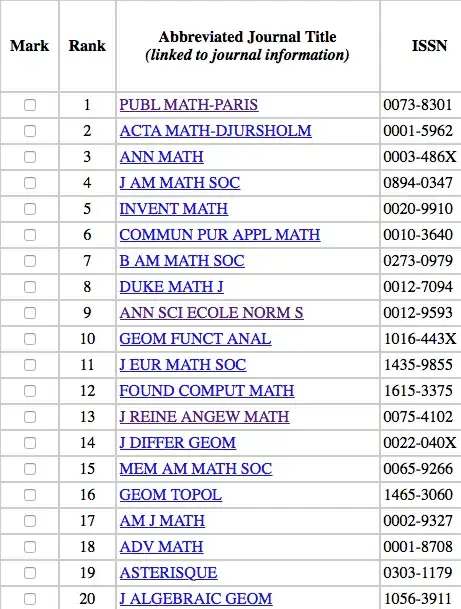I agree with everything in Anonymous Mathematician's answer, but are some additional thoughts.
First, there is no object well-ordering in terms of quality, in the sense that everyone will agree upon it. This is a necessary consequence of there not being a well-defined measure of quality for individual papers, variation among referees and editors, and that the value of a paper often can't be properly assessed until years after publication.
In math, unlike some other fields, there are typically a lot of journals that would be a good fit for your article, and in most situations it shouldn't make too much difference picking one over the other. I personally don't have strict mental ranking of journals in my field in mind when I submit, but some vague notion of tiers and it's more like, okay these are all in the same tier and I'll just pick one of them. (I also usually have no sense of how good my papers are when I submit them.)
I would never think, oh, we should hire this person instead of that one because one has a paper in American Journal and the other has a paper in Advances. (Note: I would not put all the journals you listed in the same tier.) I just think, oh this person has 1-2 papers in great journals and 2-3 papers in good journals, and the rec letters are stellar.
There are some situations where rankings of journals are directly used for evaluating people (either impact factor, or Australia's letter grades, though these do not line up with most people's notions of quality), though these are relatively rare in the US, and I would only worry about this if your colleagues tell you too.
So, I would talk to some colleagues in your field, to see if they have further input. A couple of other things you should consider are what kinds of paper the journals in your field have been publishing recently (look through some recent issues as well as at the editorial board---I often choose a journal just based on an editor--an editor who can better appreciate your work can both better choose an appropriate referee and is more likely to push for your paper to be accepted), and the general operation of the journal (e.g., some are much faster than others---see the AMS data).
